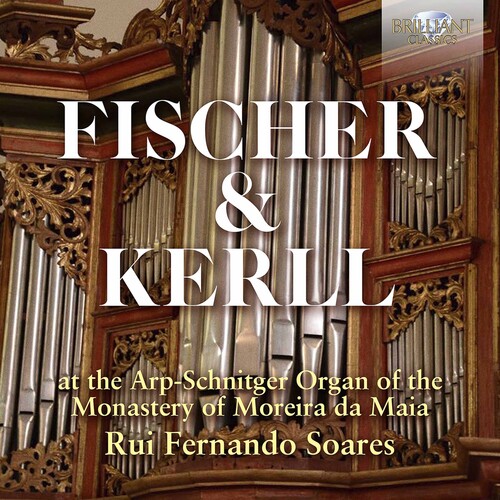Show results for
Deals
- 4K Ultra HD Sale
- Action Sale
- Alternative Rock Sale
- Anime sale
- Award Winners Sale
- Bear Family Sale
- Blu ray Sale
- Blu ray Special Editions
- Blues on Sale
- British Sale
- Classical Music Sale
- Comedy Music Sale
- Comedy Sale
- Country Sale
- Criterion Sale
- Electronic Music sale
- Hard Rock and Metal Sale
- Horror Sci fi Sale
- Kids and Family Sale
- Metal Sale
- Music Video Sale
- Musicals on Sale
- Mystery Sale
- Naxos Label Sale
- Page to Screen Sale
- Rap and Hip Hop Sale
- Reggae Sale
- Rock
- Rock and Pop Sale
- Rock Legends
- Soul Music Sale
- TV Sale
- Vinyl on Sale
- War Films and Westerns on Sale

Arp-Schnitger Organ
- Format: CD
- Release Date: 1/21/2022

Arp-Schnitger Organ
- Format: CD
- Release Date: 1/21/2022
- Composers: Johann Kaspar Ferdinand Fischer, Johann Kaspar Kerll
- Label: Brilliant Classics
- UPC: 5028421964126
- Item #: 2461206X
- Genre: Classical
- Release Date: 1/21/2022

Product Notes
Fischer was likely Bohemian, specifically from Schonfeld, Carlsbad (now Krásno, Karlovy Vary in the far west of historical Bohemia), and was a very influential musician and composer in his day. Little is known of his career until the 1690s, when he was named capellmeister to Ludwig Wihelm of Baden, where he remained until his death at Rastatt. His largest and perhaps most significant work is the Musicalischer Parnassus of 1738, a collection of a great number of keyboard pieces organized into nine suites. In it, Fischer combines the French orchestral style with the German style. Each of the suites is named for one of the nine Muses. This recording features movements from the Urania and Euterpe suites, along with a Prelude and Chaconne from his remaining oeuvre. This repertoire is usually associated with the harpsichord and rarely performed on the organ, yet there are similarities with the "variations" style so often employed by Buxtehude and Bach in organ works. Kerll, the son of an organist and organ maker from Adorf in the south-west Saxon part of historic Vogtland, showed musical promise from a very early age. He travelled to Vienna to study under Valentini, then capellmeister at the Viennese Imperial Court, and he converted to Catholicism, which later led him to Rome where he likely had contact with Carissimi and Frescobaldi. He was named principal musical director to Ferdinand Maria, Elector of Bavaria, in 1656 and became one of the most acclaimed composers of his day. His influence on Handel and J.S. Bach is notable. His works display a mastery of the Italian concertante style and highly developed contrapuntal technique.

